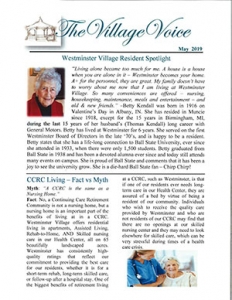Chaplain’s Corner: LV
“Mortal Lessons”
Bible commentator Dale Bruner, trying to describe “the deep grace of God for a flawed human race” says there is one illustration that has helped him more than any other. It comes from Dr. Richard Selzer’s experience as a surgeon, as reported in his book Mortal Lessons.
Selzer writes: “I stand by the bed where a young woman lies, her face postoperative, her mouth twisted by palsy, clownish.” A tiny twig of the facial nerve, the one to the muscles of her mouth, has been severed. She will be this from now on. The surgeon had followed with religious fervor the curve of her flesh, I promise you that. Nevertheless, to remove the tumor in her cheek, he had to cut the nerve. Her young husband is in the room. He stands on the opposite side of the bed and together they seem to dwell in the evening lamplight, isolated from me, private. “Who are they, I ask myself, he and this wry-mouth I have made, who gaze and touch each other so generously, greedily.”
The young woman speaks, “Will my mouth always be like this?” she asks “Yes”, I say. “It will because the nerve was cut.” She nods and is silent. But the young man smiles. “I like it, “It is kind of cute” he says.
All at once I know who he is. I understand, and lower my gaze. One is not bold in an encounter with a God. Unmindful of me, he bends to kiss her crooked mouth, and I am so close I can see how he twists his own lips to accommodate to hers, to show her that their kiss still works.
What does John the gospel writer mean when he declares that God himself took on flesh and became one of us (John 1:14)? He means at least this:
Whatever our condition-whatever we may have lost while making our way through this fallen world-nothing will be able to extinguish God’s passion to come alongside us.
Faithfully,
Ron Naylor, Chaplain




